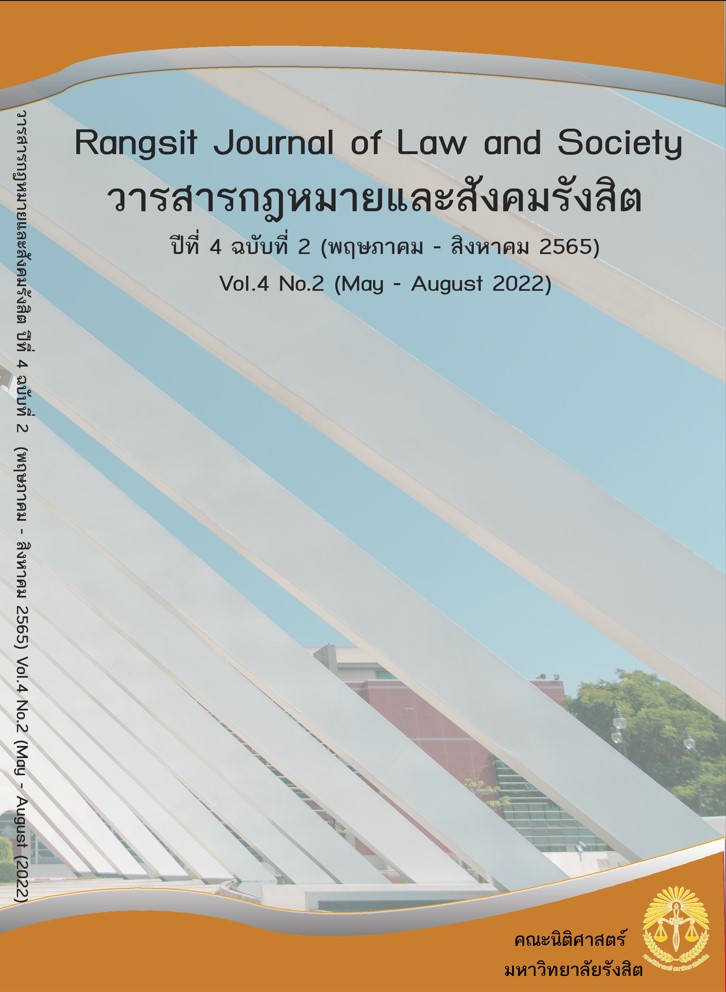บทบาทของศาลในการบังคับโทษจำคุกในสหพันธ์สาธารณรัฐเยอรมนี
Main Article Content
บทคัดย่อ
กระบวนการยุติธรรมทางอาญาในสหพันธ์สาธารณรัฐเยอรมนี มีกระบวนการทำงานที่เป็นระบบและมีความร่วมมือกันอย่างมีประสิทธิภาพ โดยเฉพาะในขั้นตอนของการบังคับโทษจำคุก ศาลจะมีบทบาทมากในการออกคำพิพากษา โดยคำพิพากษาได้ระบุสาระสำคัญในการบังคับโทษที่เหมาะสมกับผู้ต้องถูกบังคับโทษเป็นรายบุคคลด้วย ผู้พิพากษาคดีอาญาจึงต้องมีความรู้ในเรื่องของโทษ และวิธีการบังคับโทษจำคุกในกิจกรรมต่างๆ ที่เรือนจำจะดำเนินการกับผู้ต้องคำพิพากษา โปรแกรมการพัฒนาพฤตินิสัยแต่ละลักษณะ ระยะเวลาแต่ละโครงการ ตลอดทั้งสัมฤทธิ์ผลที่จะเกิดขึ้นกับบุคคลที่ต้องโทษคนนั้นๆ การทราบรายละเอียดของเรือนจำ รูปแบบการดำรงชีวิตในเรือนจำ ความจุของเรือนจำ ประเภทของเรือนจำ อย่างละเอียด เพื่อที่ศาลจะได้ทราบถึงระยะเวลาและความเหมาะสมในการกำหนดอัตราโทษ และมาตรการบังคับต่างๆ ให้เหมาะสมกับผู้ต้องโทษเป็นรายบุคคล นอกจากนั้น ศาลยังมีบทบาทในการพิจารณาคำร้องขอต่างๆ การพักการลงโทษ การลดวันต้องโทษ และการอภัยโทษ ในเยอรมนีศาลจึงมิได้ทำหน้าที่พิพากษาแล้วหมดหน้าที่ แต่ยังมีส่วนสำคัญในการเข้าไปกำหนดสาระสำคัญในการบังคับโทษจำคุก ติดตามผลการบังคับโทษเป็นรายบุคคล จนเสร็จสิ้นกระบวนการตามระยะเวลาของคำพิพากษา ซึ่งนับว่าเป็นการทำหน้าที่ที่สำคัญต่อสังคมในการรับผิดชอบการแก้ไขฟื้นฟูปรับพฤตินิสัยของผู้กระทำความผิด อันมีผลกระทบต่อสังคมในอนาคตด้วย โดยเป้าหมายหลักคือ ให้ผู้กระทำความผิดสามารถมีชีวิตใหม่ภายหลังการพ้นโทษได้โดยปราศจากการกระทำความผิด เคารพกฎหมาย และมีความรับผิดชอบต่อสังคมอย่างแท้จริง บทบาทของศาลในการบังคับโทษจำคุกในเยอรมนีจึงเป็นบทบาทที่สำคัญและคุ้มครองสังคมเยอรมนีได้อย่างมีประสิทธิภาพมาก
Article Details

อนุญาตภายใต้เงื่อนไข Creative Commons Attribution-NonCommercial-NoDerivatives 4.0 International License.
เอกสารอ้างอิง
คณิต ณ นคร. (2547). กฎหมายอาญาภาคทั่วไป. พิมพ์ครั้งที่ 7 กรุงเทพฯ: วิญญูชน
รติบดี รชตะเมธากุล. (2556). บทบาทของผู้พิพากษาในการพักการ. มหาวิทยาลัยธุรกิจบัณฑิตย์
ธานี วรภัทร์. (2558). กฎหมายบังคับโทษจำคุก. พิมพ์ครั้งที่ 2 กรุงเทพฯ: สำนักพิมพ์วิญญูชน
ธานี วรภัทร์.(2560). ผู้ต้องขังเป็นศูนย์กลางของการบังคับโทษจำคุก. วารสารกำลังใจ, 5(4), 34
ธานี วรภัทร์.(2555). การลดปริมาณผู้ต้องขังในเรือนจำศึกษามาตรการทางกฎหมายในชั้นบังคับโทษจำคุก. มหาวิทยาลัยธุรกิจบัณฑิตย์.
อภิชาต ดำรงสันติสุข. (2556). แผนบังคับโทษจำคุกรายบุคคล. มหาวิทยาลัยธุรกิจบัณฑิตย์
Bernd-Dieter Meier. (2009). Strafrechtliche Sanktionen. 3 Auflage. Hannover:Springer. Germany.
Günther Kaiser. (1974). Strafvillzug. 5 Auflage. Freiburg:C.F.Müller Verlag. Germany.
Laubenthal, Klaus.(2008). Strafvollzug. Würzburg:Springer. Germany.

